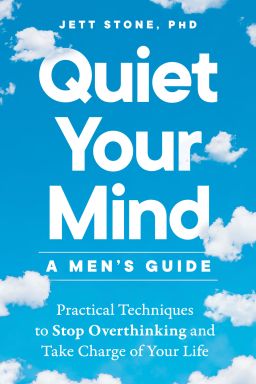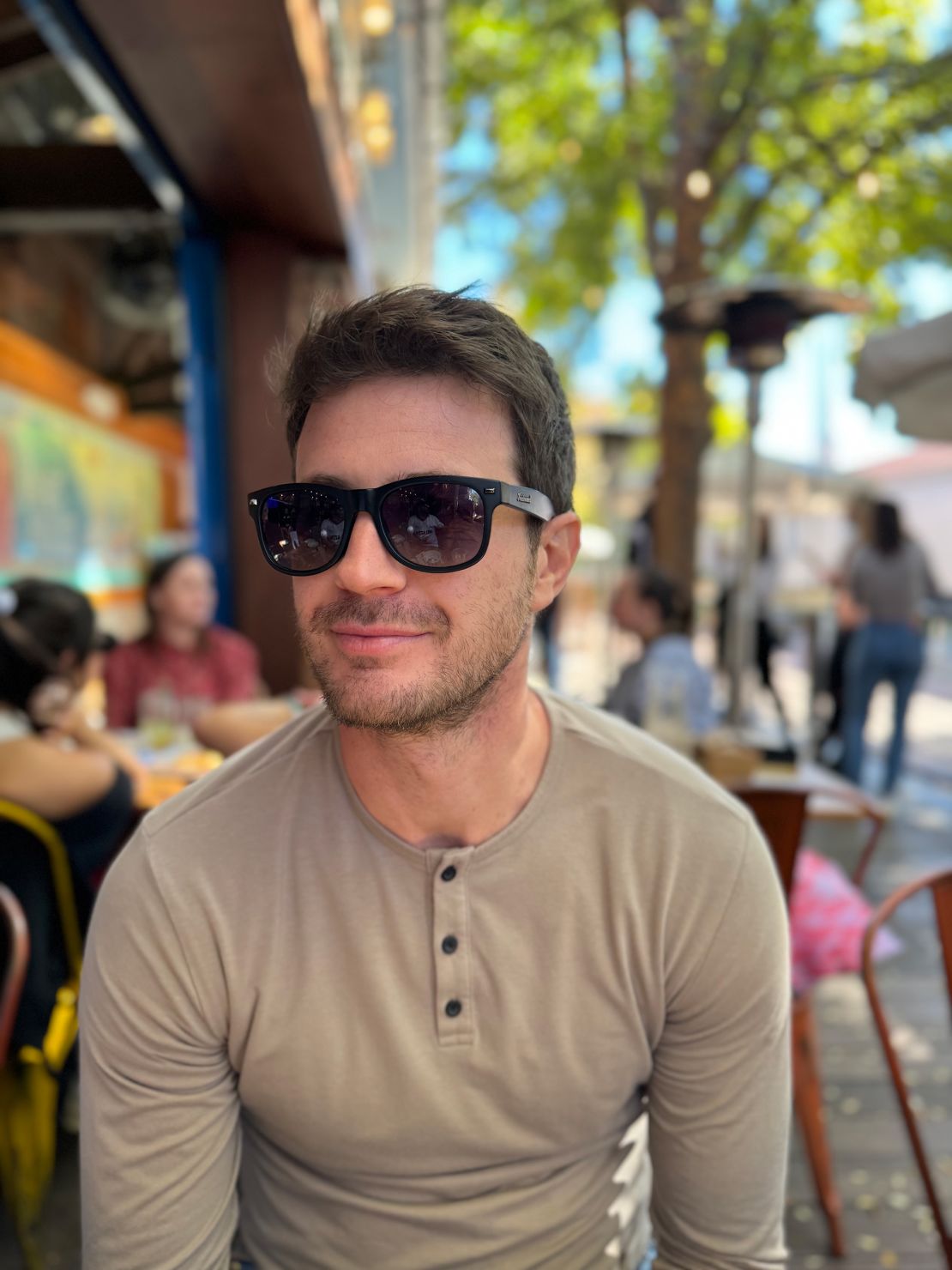Sign up for CNN’s Stress, But Less newsletter. Our six-part mindfulness guide will inform and inspire you to reduce stress while learning how to harness it.
CNN
—
In one 48-hour period this winter the garbage disposal went out, the dishwasher stopped working, one of my kids left the garage door open overnight, and two pipes burst.
Sometimes these singular problems multiply like rabbits, and I lay awake at night going over budgets and worrying about finances. Or I focus on the past and wonder what I could have done to prevent all of this.
My thoughts get loud and crowded, screaming matches occur in my mind, and I start to feel tingling in my forearms. By morning, my patience is gone, my stress and anxiety are up, and my family can pay the price.
During this latest pileup, I ran around trying to get a handle on everything, needing help but feeling overloaded so I didn’t ask for it.

My youngest son spotted trouble and warned his siblings: “Dad is doing that fast walk thing — watch out.” I’m usually patient with my three children, but when I’m overloaded, I become a tyrant with a short temper who barks orders. In these moments, my wife pulls me away just so I can breathe.
“There are battles going on inside the minds of men,” said Dr. Jett Stone, a clinical psychologist based in Greenwich, Connecticut, and author of “Quiet Your Mind: A Men’s Guide: Practical Techniques to Stop Overthinking and Take Charge of Your Life.”
“Men tend to externalize, which means that the inner stuff gets put out into the world, whether it’s reckless driving, drinking or hyperactivity,” said Stone, who specializes in men’s mental health. “Men are socialized into holding back their interior life.”
Stone gave me hope that it doesn’t have to be that way, sharing his guidance for how men can learn to calm our thoughts and take control of our actions.
This conversation has been edited and condensed for clarity.
CNN: What are the health consequences of men overthinking about our lives?
Dr. Jett Stone: It can cause stress, and then your heart beats faster, your hands get clammy, and you might get a headache. Or maybe you feel something else. Everyone has different physical symptoms. One of the best places to catch overthinking is by noticing how your body feels. Sometimes it’s simpler for men to access their bodies than it is to access what’s going on in their minds.

CNN: Why are men overthinking, and how can we stop doing it?
Stone: Men are being asked to take on more of the mental load, which includes emotional labor — which is the time spent helping to address, manage and regulate the emotions of your kids and yourself around parenting. They are also asked to take on more of the cognitive load, which is what you need to do as a parent. One example: I need to pick up the kids from a sports practice, which means I need to plan it and then execute it. It’s the executive function of being a modern parent. It’s laborious and invisible.
We are naturally going to feel more cluttered in our minds. It is a function of modern society demanding more of fathers and rightfully so.
The first step is recognizing and naming the overthinking. Even just calling that out to yourself is incredibly powerful. The next step would be to get in touch with the triggers of it. What are your particular triggers for overthinking when it comes to fatherhood?
For some dads, it comes with, “Am I spending enough quality time with my kids with the demands of work?” “Did I react too harshly?” “Can I provide enough for my family?” These are all questions that can set men off on mental loops.
The next step is to do a quick breathing routine like a cyclic sigh, which has really strong health benefits and really produces calm. Basically, it is two inhalations, followed by a really slow out-breath. You can combine this with a mindfulness technique called a body scan. Go from the top of your body to the bottom or vice versa and notice your body markers of your stress. Notice that tension in your shoulders, arms or wherever. Breathe into it, tense it up and relax it.
CNN: You talk about mapping your thoughts. What is that, and how it can help?
Stone: Mapping is recognizing what triggers your overthinking and then asking where does this go. It’s pinpointing those moments.
For example, let’s say your boss gives you feedback about your underperformance in a meeting, and afterward, you find yourself stuck in a mental loop. Your mind might go from “I sounded so stupid in front of him” to “I’ll never be able to buy a home if I don’t make more money.”
Using mapping, you would slow down, shift your focus and begin to notice and categorize the path your mind takes. Instead of fueling the overthinking, you zoom out and map through writing or observing how your thoughts veered across themes: from self-image to financial security, all in one loop. These are some of the categories I include in the book.
In this example, one small interaction triggered a familiar mental route. “Mapping” this route using common categories helps you recognize where your mind tends to go when left to its own devices.
CNN: Instead of churning through our thoughts, you say we need to find “our deeper drives.” What does that mean, and how do we do it?
Stone: Our deeper drives, a term from psychologist Steven Hayes’ work, are things like belonging, wanting to connect and be accepted by others, competence, to feel like you’re capable and effective. They are human needs.
This may require some solo contemplation, dialogue with friends, therapy or journaling. Ask yourself: “What am I seeking? Am I seeking something like belonging? Am I missing a sense of orientation in the world, meaning, fulfillment or direction?” It’s never usually one thing.
It can be incredibly liberating when you can pinpoint an unmet drive. It’s no longer about saying this is not just some silly insecurity that I have. It’s something all humans need.
CNN: One way you suggest quieting the mind is to practice gratitude and kindness. How do you do that, and what are the benefits?
Stone: Juxtapose gratitude with overthinking. Overthinking is narrowly focused, while gratitude increases your field of vision. Helping others expands that visual field. It helps you gain perspective and move beyond the self-referential type of thinking into the outer world and where you need it, where you can lend a hand.
Showing gratitude can be done in a text to friend, a phone call to your parent or verbally saying (something) to a spouse or partner. It can be as simple as saying thank you for cleaning the kitchen. A gratitude journal is a way to making yourself aware of what to be grateful for in your life. You can simply write down a couple of things or people you are grateful for each morning.
CNN: How can fathers control their anger rather than lashing out at family, friends or ourselves?
Stone: There’s usually stuff that lives beneath the anger. Sometimes anger is righteous, justified and productive. Sometimes, it is unproductive anger, which is not effective.
If you notice you are angry, a stop sign needs to come up in your mind at that moment. Pause and just breathe. A lot of times we are not breathing in those moments. Taking the time to do that can take anger from a 10 to a 9.
Observe it for a second and even just ask yourself one question. What do I want from this? What are my goals? It then can take that anger from an 8 to a 7. Anger can be really scary for family members, especially coming from a dad, because it’s a big, intimidating emotion.
Channel that instinct and do a little bit of self-interrogation. The second question you can ask is what is living beneath? What emotions are living beneath this anger? Am I fearful of not being able to provide for my family? Am I feeling ashamed that I’m not holding my weight?
CNN: What do you do when the man you want to be conflicts with the man whom you present to the world?
Stone: I would say that those aren’t two different parts of yourself. You are many selves, and both of those are part of who you are, but accepting that can be very hard. It’s a part of you, and you need to be aware of it. It’s getting those perspectives out of opposition and becoming more at peace that we are many things.
Shannon Carpenter is a writer, author of the book “The Ultimate Stay-at-Home Dad” and married father of three.

